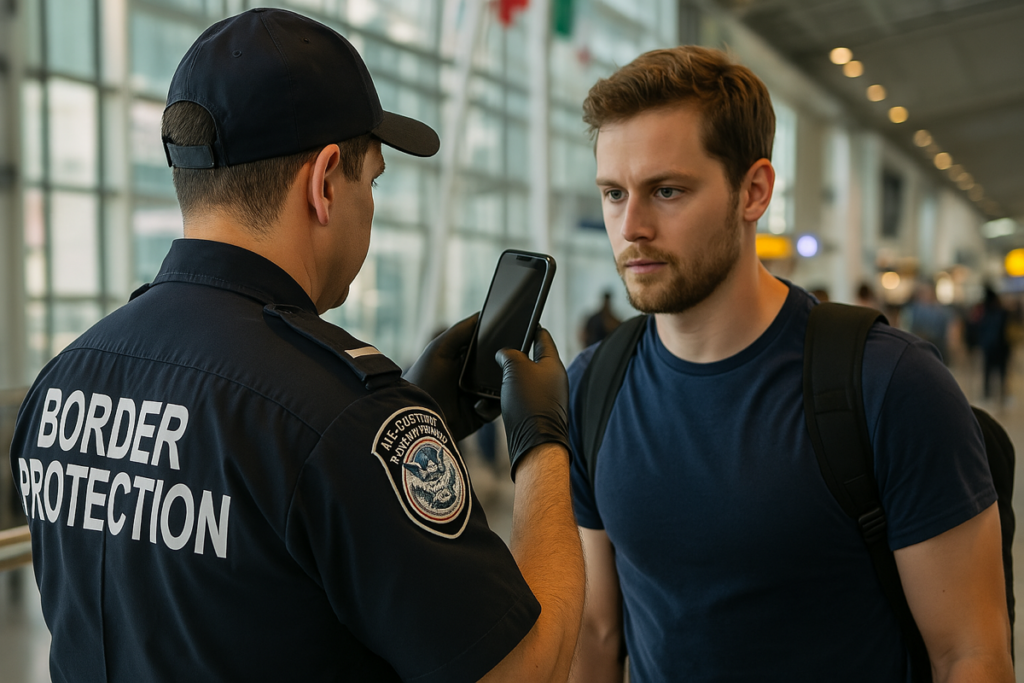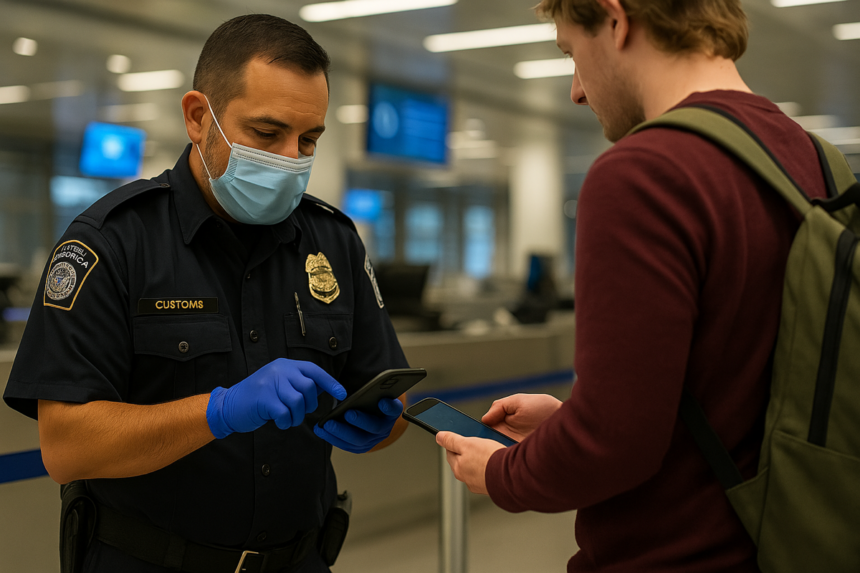Australians traveling to the United States face a new reality at the border. Phones, laptops, and other electronic devices may be searched as part of security measures. Questions are mounting about privacy and data protection for international travelers, especially those from Australia, who may not be familiar with the specifics of U.S. border security protocols.
What’s Happening & Why This Matters
In recent years, U.S. authorities have ramped up efforts to inspect electronic devices belonging to international travelers entering the country. This includes Australian travelers, whose smartphones and laptops could be searched by U.S. Customs and Border Protection (CBP) agents. While these actions are presented as a necessary security measure to combat terrorism and other threats, they raise concerns about privacy violations and the scope of government authority over personal data.
Searching phones and other electronic devices is not new but is becoming more prevalent as technology advances and digital information plays an increasing role in global security. For Australians traveling to the U.S., it’s essential to understand the rules surrounding device searches and how they could impact their privacy.
Recent reports indicate that travelers to the U.S. may be asked to unlock their phones or provide passwords to gain access to personal files, photos, messages, and more. While these searches are conducted under the premise of national security, they have raised concerns about the lack of clear regulations regarding how personal data is handled once accessed.
Understanding these new security protocols and the potential risks to personal data is crucial for travelers from Australia. Currently, U.S. border agents have the legal authority to conduct searches on any devices without requiring a warrant. This practice is outlined under U.S. customs regulations and has been justified as a method to screen for security threats. However, critics argue that this opens the door for unnecessary invasions of privacy.

Travelers and Privacy Protection
Australians entering the U.S. should be aware that their devices could be subject to inspection without notice. If asked to unlock their devices, travelers could be compelled to do so. The concern lies in how U.S. officials handle the data on these devices once accessed, especially considering that personal information such as emails, contacts, financial details, and private conversations could be exposed.
Legal experts are concerns about the lack of transparency and accountability in these searches, emphasizing the need for more explicit boundaries on what constitutes an acceptable search. How data is retained or deleted after the inspection? Some advocate for stronger legal protections for international travelers to ensure their data is not unnecessarily compromised.
Furthermore, device searches may lead to delays for Australian travelers entering the U.S., especially if they face questions regarding sensitive information or refuse to unlock their devices. This situation creates tension between security measures and personal privacy rights, which could be unsettling for travelers unaware of their rights in this context.
TF Summary: What’s Next
Technology plays a central role in global security measures, device searches at international borders may become more common. For Australians traveling to the U.S., it’s important to stay informed regarding shifts in border security protocols.
In the future, travelers may see increased scrutiny of their devices at U.S. borders. There will always be a debate about balancing security with privacy. In the global conversation of data privacy and security, how governments adjust their policies to address concerns remains to be seen. For now, any travelers to the U.S. should consider protecting their personal information. Back up sensitive data, use encrypted apps and tools, and familiar yourself with the rules of travel destinations.
— Text-to-Speech (TTS) provided by gspeech


